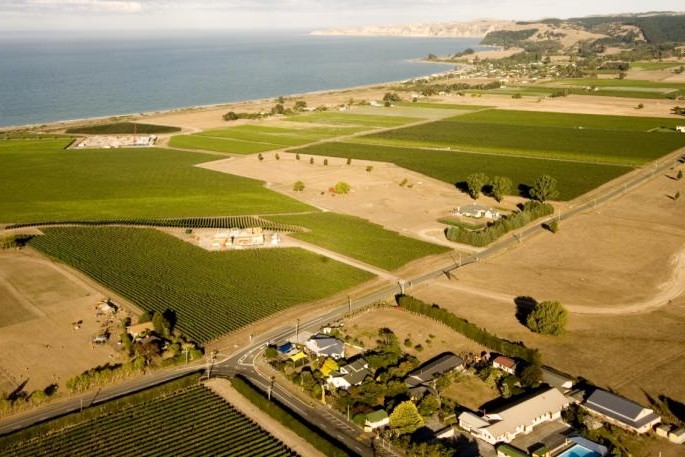The recent agreement on the terms of a cost-sharing arrangement between Councils and Government worth up to $556 million in Government recovery investment is another significant step forward as the Hawke’s Bay region tackles the large task of recovery from Cyclone Gabrielle, the Hawke’s Bay Regional Recovery Agency says.
The Crown offer, which is still subject to consultation with communities in Hastings and Napier, will help to address some of the most urgent, region-wide aspects of the recovery, says Regional Recovery Agency Board Chair, Blair O’Keeffe.
“The funding package is a vital first round of Government and Council investment in flood protection and road infrastructure that will, once completed, restore transport links across the region, reduce risks to life and property in a number of areas, and provide investment certainty, enabling economic activity across the region to recover. It is also a critical first step in the process of enabling those whose homes have been most affected to move forward with decision making.
“Alongside the outcome of the negotiations, we’ve seen more than $133 million of Government funding to help with the processing and disposal of silt, with more than 580,000 cubic metres already collected by Councils across the region.
“More than $74 million has been paid to farmers and growers through approved recovery grants, alongside a financing support package.
“A $11.5 million Community Support Package has enabled providers supporting communities to extend the reach of their psychosocial support for those who need it most.
“We’ve seen access to communities restored through the building of Bailey bridges across the region alongside numerous slip and drop out repairs, and a temporary replacement of the Redclyffe Bridge has just last week reopened, providing a third route between Napier and Hastings. Power restoration and short-term winter resilience is also well advanced.
“There is a huge effort being put in, under trying circumstances, by so many, including local businesses, community organisations, Marae, Taiwhenua and other iwi/Māori organisations, individual households, our region’s Councils, and Government agencies. All are playing a key role in restoring whÄnau, communities, businesses, our infrastructure and environment.”
There’s still a lot to do, with all progress made getting us closer to bouncing back as a region, says Blair.
“The Regional Recovery Agency’s focus remains on connecting local and regional needs with any and all Government assistance available for the short and longer term.
“Whilst progress is being made on urgent priorities, we also need to continue to push for a longer-term, aspirational view for the region’s recovery. We simply cannot miss the opportunity to ensure we build Hawke’s Bay back safer, smarter, and more resilient than before.
“This is about building infrastructure that is not only resilient to severe weather events and other hazards but also fit for purpose for the future; it’s about investment that creates a foundation for economic success, social prosperity and equity; and it’s about working in partnership with our Māori, iwi and hapū partners to enable Māori participation and leadership of recovery efforts that can grow Māori business and reduce inequities in our communities.
“Key longer-term conversations need to focus not just on building back, but on building back differently. This includes things like ensuring our region’s electricity infrastructure is resilient to flood and other hazards, ensuring road and bridge designs don’t simply recreate what existed pre-cyclone, but instead incorporate climate resilience and efficiency improvements such as creating a four-lane expressway and removing the many vulnerable gorge sections that threaten our vital state highway network. Many regional connector roads also need work.
“We need to find a way to establish a future-proof and fully resilient hospital and associated health infrastructure, we need to ensure housing across the region, both immediate and longer term, is planned and delivered, including in partnership with our Māori, iwi and hapū partners, in a way that meets the genuine needs of our communities.
“We need to ensure that, through rebuild investment, there are business, employment and training opportunities for local businesses and residents. We need to enhance flood protection and water security, we need to grow confidence in the region to encourage future investment in industry and housing, and we need to design our infrastructure and other investments in a way that works with the environment and natural system rather than against it.
“Sustainable long term funding solutions are required to support all of this, with many existing arrangements needing a rethink, including government regulatory and policy settings.”
Blair says both the first iteration of the Regional Recovery Plan and its associated action plan, which is more short term in nature, are in the final stages of refinement after initial feedback from Government and will be released in the near future.
“A key component of the plan includes ensuring Hawke’s Bay’s recovery priorities align with the Government’s programmes and future funding pathways. The Regional Recovery Agency, in conjunction with the region’s leaders, will continue to progress these important discussions with the Government over the months ahead whilst we also build the longer-term masterplan for the region.”



